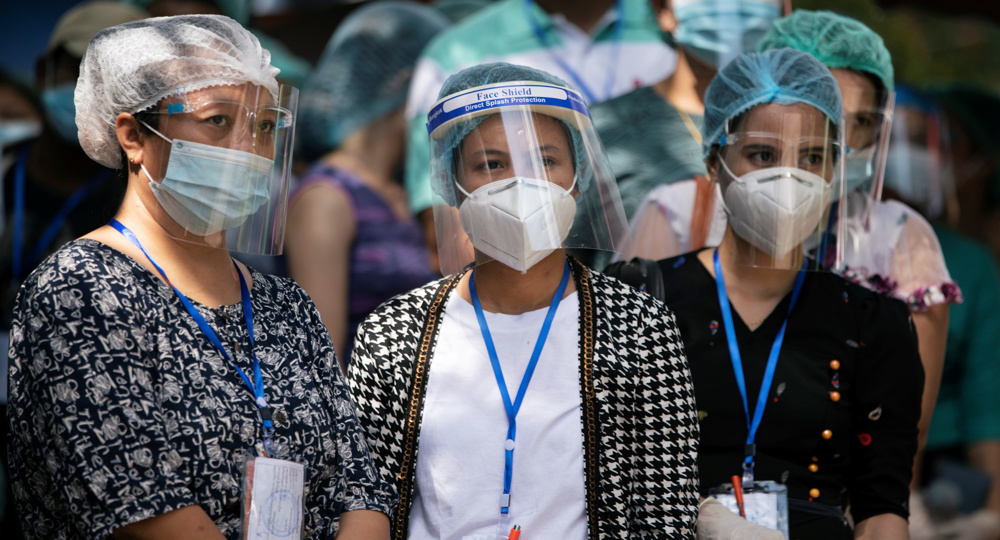Bangladesh starts 'coercive' relocation of Rohingya refugees to remote island
Bangladesh has started forced removal of hundreds of Rohingya Muslim refugees to a controversial facility at a remote island in the Bay of Bengal.
A ship carries 1642 refugees to Bhasan Char, an island about 40 kilometres off the coast near the city of Chittagong, said Bangladesh Minister of State for Foreign Affairs on Friday.
The Bangladeshi government constructed a network of shelters on the island to relocate up to 100,000 refugees currently living in cramped camps in Cox's Bazar, near the Myanmar border.
Earlier this year, Bangladesh has sent more than 300 refugees to the island.
Human rights groups and the refugees, however, complain about the safety of the uninhabited, low-lying island, as it often becomes partially submerged during monsoon season and is vulnerable to cyclones.
Rights groups say that some refugees were being coerced to move to the island facility.
Aid workers also said officials used threats and enticements to pressure people into leaving Cox’s Bazar.
“They have taken us here forcefully,” a 31-year-old man told Reuters.
“Three days ago, when I heard that my family is on the list, I ran away from the block, but yesterday I was caught and taken here,” he said.
Bangladesh, however, dismissed the allegation, saying it “is not taking anyone to Bhashan Char forcibly.”
Foreign Minister Abdul Momen also described reports of coercion as “absolutely baseless."
Human Rights Watch (HRW) has described conditions on the island as "poor."
The group has expressed concerns that Rohingya will be facing a lack of adequate medical care and that they could be denied freedom of movement, sustainable livelihoods or education.
Refugees International said in a statement that the relocation was "short-sighted and inhumane," and should be stopped.
It is also unclear if any humanitarian agencies will be allowed to the island.
The refugees being relocated are among more than 730,000 Rohingya Muslims, who fled a state-sponsored crackdown in the Myanmar's Rakhine state.
Thousands of Rohingya Muslims were killed, injured, arbitrarily arrested, or raped by Myanmar soldiers and Buddhist mobs mainly between November 2016 and August 2017.
The Rohingya, who have been described as the world’s most persecuted community by the United Nations, are denied citizenship in Myanmar and considered illegal immigrants and have no right to vote, despite their ancestral roots dating back centuries.
UN investigators have accused Myanmar’s military of “genocidal intent.”
A United Nations fact-finding mission had previously found that “the gravest crimes under international law” had been committed in Myanmar and called for genocide trials.
Jordan sentences former lawmaker for supporting Palestinian resistance
Basij volunteer forces hold massive drills in southwestern Iran
Israeli war criminals 'not welcome', US city says after ICC ruling
US vetoing of Gaza ceasefire resolution ‘disgraceful’: Iran’s UN envoy
VIDEO | IAEA adopts anti-Iran resolution tabled by E3
VIDEO | Iran's president urges Pope to help end Israel's onslaught in Gaza
Iran's senior legal official: ICC arrest warrant for Netanyahu ‘great victory'
Nov. 21: ‘Axis of Resistance’ operations against Israeli occupation














 This makes it easy to access the Press TV website
This makes it easy to access the Press TV website